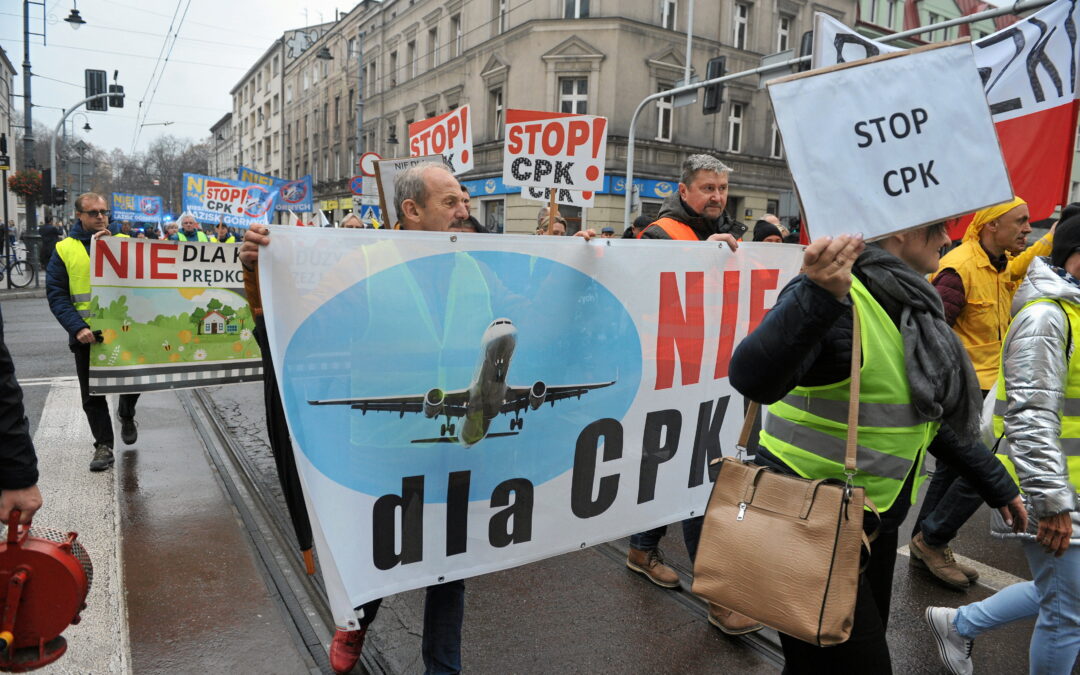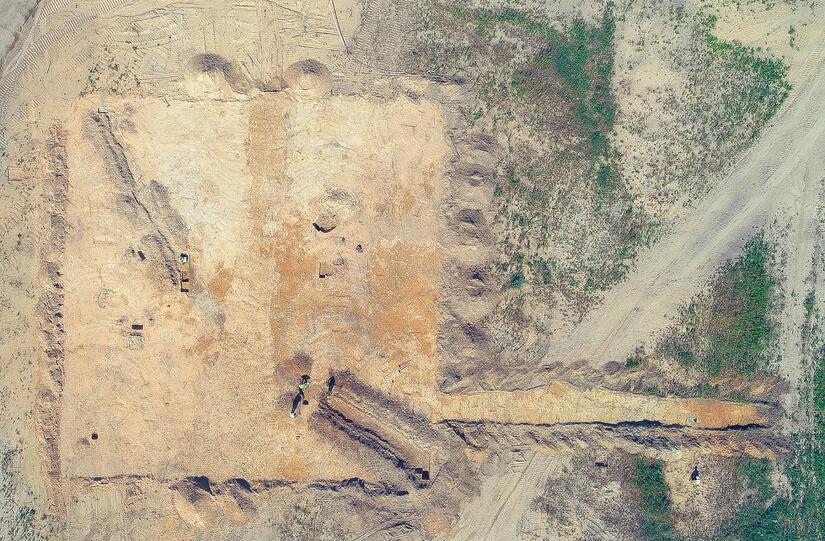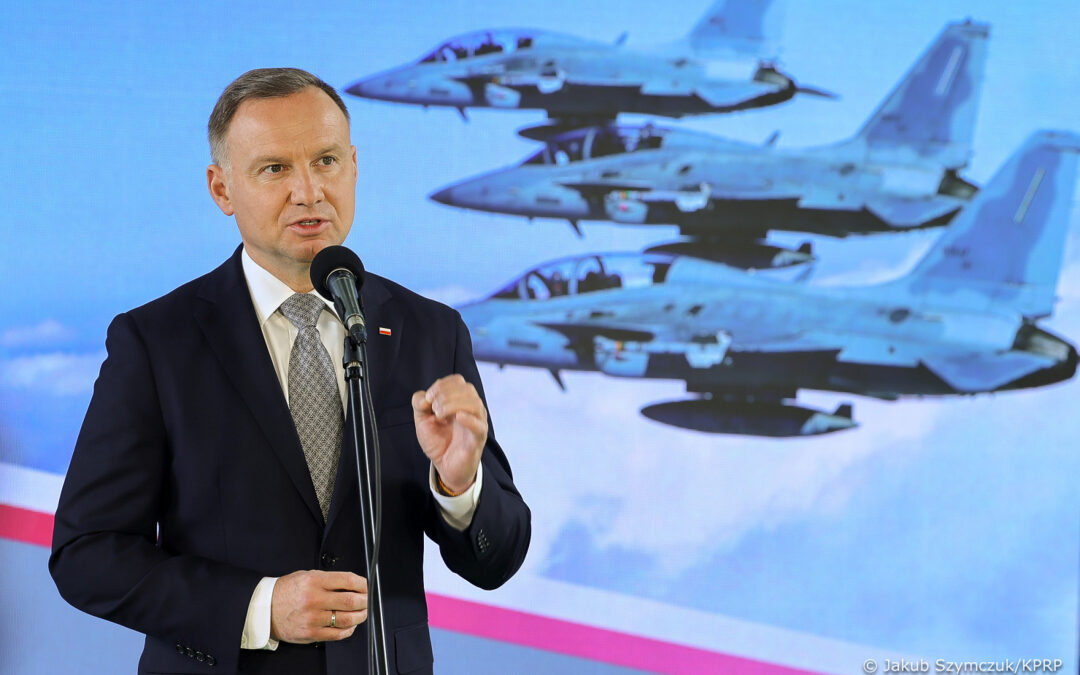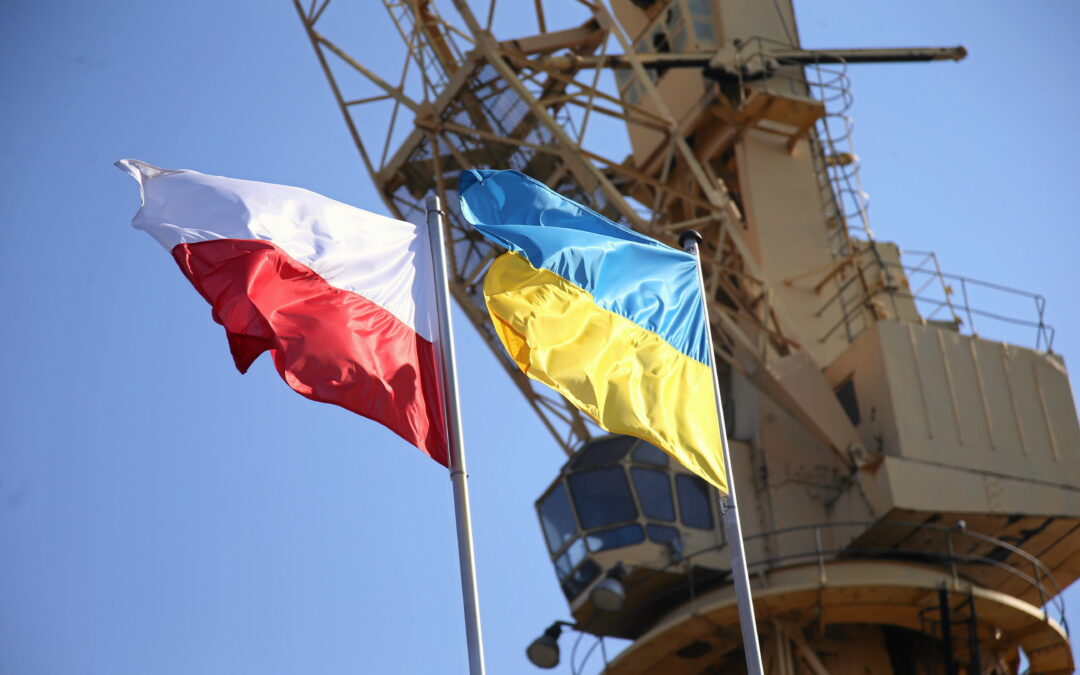By Jacek Płaza
Poland’s new government has announced a pause and “audit” of one of its predecessor’s flagship projects, a planned mega-airport and rail hub between Warsaw and Łódź known by its Polish initials of CPK.
The decision has not only prompted criticism from the former ruling Law and Justice (PiS) party, now the main opposition, but also divisions within the ruling coalition that took office in December.
The head of a planned new “mega-airport” and transport hub in central Poland – a flagship project of the former PiS government – has been fired and the new government has launched an audit of the plans https://t.co/ymyYYwvxra
— Notes from Poland 🇵🇱 (@notesfrompoland) January 22, 2024
The most prominent sceptic of the project is the deputy minister of funds and regional policy, Maciej Lasek, who is also the government’s plenipotentiary for CPK. Last month, he dismissed CPK’s supervisory board and appointed a new one that would be more cooperative during an audit of the project announced by Prime Minister Donald Tusk.
In a parliamentary speech, Lasek criticised the unrealistic construction schedule, pointed to potential risks, questioned expenditure, and condemned the previous government’s decision to not expand existing regional airports around Warsaw. “All the expenses will be verified,” Lasek declared.
In a subsequent interview he went even further, stating that, while some aspects of the project, such as new rail infrastructure, could be maintained, the mega-airport itself would not be built.
Addressing the issue yesterday, Prime Minister Donald Tusk reiterated that no decision has yet been made. But he pointed to the high costs of the CPK, which he said was the equivalent of 50,000 zloty (€11,550) for each Polish family (though that figure includes both the airport and new rail connections, the latter of which the new government is more favourable towards).
Tusk o zwijaniu projektu CPK
– nikt nie wie ile ma to kosztować
– musimy kupować amunicje
– każda rodzina musi na to wyłożyć 50 tys. zł pic.twitter.com/OThLYgIqjx— Radosław Poszwiński (@bogdan607) February 11, 2024
“I am a responsible man. This decision must be well-thought-out and cannot have a political context or one dictated by ambition,” said Tusk. “I don’t have a complex towards the Germans or the French, so I don’t have to prove every day that I will have a bigger airport [than them].”
However, there are also prominent figures in the new administration who suggested that CPK should continue in some form.
“There is no way it will be cancelled,” said infrastructure minister Dariusz Klimczak in December. “This project has [already] consumed so much money that…it must not be thrown in the trash. The question is what form it will be continued in.”
Meanwhile, public opinion is similarly divided, though appears to lean towards going ahead with the project. A poll in November, found that 51% of Poles wanted Tusk’s incoming government to continue with CPK while 40% though they should not.
Większość respondentów chce kontynuacji inwestycji w atom, wydatków na zbrojenia i budowy CPK. Izera nie ma poparcia, podobnie jak likwidacja IPN i CBA. https://t.co/3OPehFHWJw
— Dziennik Gazeta Prawna (@DGPrawna) November 5, 2023
The need for greater capacity in Poland’s aviation industry is clear. The country recorded 49 million passengers in 2019 and, according to Civil Aviation Authority’s forecasts, which are usually quite cautious, by 2040 the number will reach 96 million.
Poland’s national carrier, LOT, went through painful restructuring in 2013 and has slowly started to build its position in the region. Having a healthy financial situation, it was about to acquire German Condor carrier in 2020 but the transaction was cancelled at the last minute after the outbreak of the pandemic.
In 2019, LOT carried 10 million passengers. That makes it far from a competitor to Lufthansa or Air France-KLM in Europe, or even to budget carriers Ryanair and Wizzair in Poland, but still leaves it as a significant player in the European market.
As opposed to low-cost airlines, LOT needs scale: a bigger hub in Poland to expand its network of destinations if it wants to serve the growing number of wealthier and more frequently flying passengers in the region.
It is a matter of debate as to whether LOT would expand rapidly enough to fully make use of a proper new hub, but without that hub the Polish carrier would be much closer to reaching its expansion ceiling, which would push it to open new bases and flights outside of Warsaw (such as in Kraków or Budapest).
Polish airline LOT has run its first flight from Asia via the North Pole.
The route could reduce travel time by 1.5 hours compared to the current flight path, which had to be changed last year after Russia banned EU planes from its airspace https://t.co/ufdFrcPTqd
— Notes from Poland 🇵🇱 (@notesfrompoland) June 19, 2023
With good economic prospects in the coming decade, there is room for aviation market growth in Poland, even taking into account rising climate burdens imposed by the European Commission on the aviation sector.
In fact, the EU’s preference for train transport as more environmentally friendly might incentivise passenger mobility from regional airports to CPK, which is planned to also be a train transport hub, linked with most regions of Poland by high-speed rail.
Moreover, any climate-induced shift towards rail is more of a threat to smaller regional airports and their low-cost carriers focused on shorter routes than it is to hubs.
With western European airspaces reaching their capacity at peak times and airports facing enormous queues during the summer, air traffic controllers look with hope to a big new airport being able to take in some of that traffic. Central and Eastern Europe lacks a hub airport that could serve the 150 million residents of the region.
CPK can also be a boon for Poland’s economy, connectivity and its position in the region. Better connectivity is often a catalyst for boosting bilateral trade – that is what has happened between South Korea and Poland in recent years.
The world's largest producer of kimchi, Daesang, has chosen Poland for its first production site in Europe
The factory – a joint venture with a Polish firm specialising in fermented food – will produce up 3,000 tons of kimchi a year under the Jongga brand https://t.co/CAqDgIrysx
— Notes from Poland 🇵🇱 (@notesfrompoland) November 8, 2022
Flight connections between Warsaw and Saudi Arabia’s capital Riyadh have just been announced, but not yet commenced, and it has already triggered the appointment of a Polish-Saudi Consulting Council. Any day now a bilateral business council will be established and in June a Saudi and Polish business meeting is planned in Warsaw.
Direct flights also give the opportunity for wider cultural and academic exchange and the growth of tourism.
Supporters of CPK note that it would provide a boost not only to passenger transport, but to cargo as well. Poland, the EU’s fifth largest country by population and sixth largest by GDP, handles only 1% of air cargo in the bloc.
Although air cargo tonnage is not significant in nominal figures, it is usually the opposite when it comes to its value. Air transport is expensive and only goods that are too valuable to travel by train or truck, or need to be delivered in a timely manner, are loaded onto planes. Handling air cargo at CPK could also boost the transport sector in Poland.
Aviation industry trends means that the new “mega-airport” being planned by Poland’s government will adopt a “completely different” business model than the one previously envisioned, with a greater emphasis on air cargo, says its executive director https://t.co/99lXkgW6Zc
— Notes from Poland 🇵🇱 (@notesfrompoland) September 30, 2021
The economic arguments regarding CPK have, however, become victim to Poland’s deep political polarisation. That was not helped by the former PiS’s government’s patriotic and often exaggerated rhetoric regarding the project, including initial claims that it would serve 100 million passengers annually. (For context, LAX, the word’s third busier airport, served 88 million passengers in 2019.)
Those plans were later scaled back and currently call for a target of 40 million passengers a year with the option to quickly scale up to 50 million, and later to 65 and even 100 million passengers in the more distant future.
Although officials from the previous government maintain that from the proposed start date of CPK in mid-2028 is possible, experts are sceptical, noting that delays in infrastructure projects are common. 2030 seems more realistic.
On Thursday, the former head of CPK, Mikołaj Wild, revealed that external analyses had shown only a 15% chance of completing the project by 2028 and 80% chance within the following two years.
Analizy robione przez firmy zewnętrzne liczyły prawdopodobieństwo zakończenia #CPK w 2028 r. na ca 15% (bez działań zaradczych i wsparcia na poziomie rządowym) oraz 80 % na rok 2030. Dziś @LasekMaciej mówi o prawdopodobieństwie 1% na 2028 i terminie na rok 2035. Co się zmieniło?
— Mikołaj Wild (@MikolajWild) February 8, 2024
The new ruling coalition has called for a transparent audit and analysis of return on investment in Warsaw’s existing airports, which the previous government abandoned due to the imminent start of operations at CPK. 18.5 million passengers used Warsaw-Chopin airport in 2023 and its estimated maximum capacity is 22 million, a limit that could be reached in 2-3 years.
IATA and local aviation authorities predict 40 million passengers in Warsaw by 2040 in a base scenario and even 7-8 million more in an optimistic one. In any case, the currently operating Warsaw-Chopin and Modlin (which served 3.4 million passengers in 2023) won’t be able to satisfy the demand by around 2028 and a solution will need to be found.
Lasek thinks investment in both Warsaw airports was halted for political reasons – to justify the construction of CPK – and that their capacity can be increased.
However, Warsaw-Chopin is subject to noise and environmental limitations. Only 600 daytime flights are allowed and changing the environmental decision could cause huge compensations for the local inhabitants since the airport is close to densely populated neighborhoods.
IATA and Polish Civil Aviation Authority support construction of CPK but IATA’s predictions on future passengers flows there were lowered yet again in a December report.
This happened shortly after a French-Australian consortium of Vinci Airports and the IFM Global Infrastructure Fund had inked a deal with CPK to acquire a minority share in the project for about €2 billion. Having private investor on board can cool down emotions and calm the political battle.
A Franco-Australian consortium has been named as the investment partner in Poland's planned "mega-airport". It will contribute up to €1.8 billion
But the likely new opposition government has expressed scepticism about the project and pledged to review it https://t.co/Cp0mSWSz2O
— Notes from Poland 🇵🇱 (@notesfrompoland) October 24, 2023
Although the total cost of the whole CPK project is estimated at over 300 billion zloty (€69 billion), much of this sum is assigned to the high-speed railway network which, with some modifications, is supported by the new government.
Opponents of new central airport have argued that the construction costs would be too big of a burden for the government’s budget. However, out of €46 billion that the airport would cost, 60% would be a loan taken by the SPV (special purpose vehicle) and paid back from the airport’s profits over the next years.
From the remaining 40% of that cost, 49% is going to be acquired by the private investors (IFM and Vinci), while the state would keep control of 51% of shares with €2 billion, out of which a few hundred million euros have already been spent. That makes less than €1.5 billion cost to pay within 5-6 years. The budget burden would not necessarily be too heavy for Polish taxpayers.
The government’s newly adopted “soft” narrative stressing an audit instead of halting CPK gives more political space for a decision on whether the project is what Poland and Europe need. Yet it also prolongs the uncertainty.
Experts say that the audit – which government officials hope will be completed by the summer – will not hurt the project as long as it is not politically motivated and does not overly delay the construction.

Notes from Poland is run by a small editorial team and published by an independent, non-profit foundation that is funded through donations from our readers. We cannot do what we do without your support.
Main image credit: Anna Lewanska / Agencja Wyborcza.pl




















